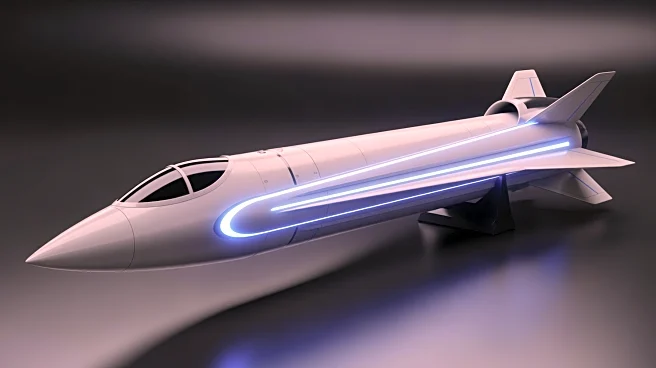What's Happening?
Ukraine has unveiled its new 'Long Neptune' cruise missile, which boasts a range of up to 1,000 kilometers, as part of its ongoing conflict with Russia. President Volodymyr Zelensky shared a video showcasing the missile in action, emphasizing its role
in striking deeper into Russian territory. The Long Neptune is a variant of the R-360 Neptune anti-ship missile, now adapted for longer-range targets. Ukraine aims to increase pressure on Russia by targeting critical assets such as oil facilities and airfields. Despite unsuccessful attempts to acquire Tomahawk missiles from the U.S., Ukraine is ramping up domestic production of the Long Neptune to bolster its military capabilities.
Why It's Important?
The deployment of the Long Neptune missile marks a significant enhancement in Ukraine's military strategy, allowing for more effective strikes against Russian targets. This development could shift the dynamics of the conflict, potentially increasing pressure on Russia to negotiate peace. The ability to target vital Russian infrastructure may disrupt the Kremlin's war economy, impacting its ability to sustain military operations. For Ukraine, this advancement represents a strategic move to leverage its domestic missile production capabilities, reducing reliance on foreign military aid and increasing self-sufficiency in defense.
What's Next?
Ukraine plans to continue scaling up production of the Long Neptune missile, alongside the development of the new Flamingo cruise missile, which has an even longer range. These efforts are part of a broader strategy to enhance Ukraine's long-range strike capabilities. As the conflict persists, further advancements in missile technology could lead to increased military engagements and potential escalations. The international community may respond with diplomatic efforts to mediate the conflict, while Russia might intensify its defensive measures to counter Ukraine's growing missile capabilities.
Beyond the Headlines
The introduction of advanced missile technology by Ukraine raises ethical and legal questions regarding the escalation of military capabilities in conflict zones. The potential for increased civilian casualties and infrastructure damage highlights the need for international oversight and dialogue. Additionally, the focus on domestic missile production reflects a shift towards self-reliance in national defense, which could influence future military strategies and alliances.















